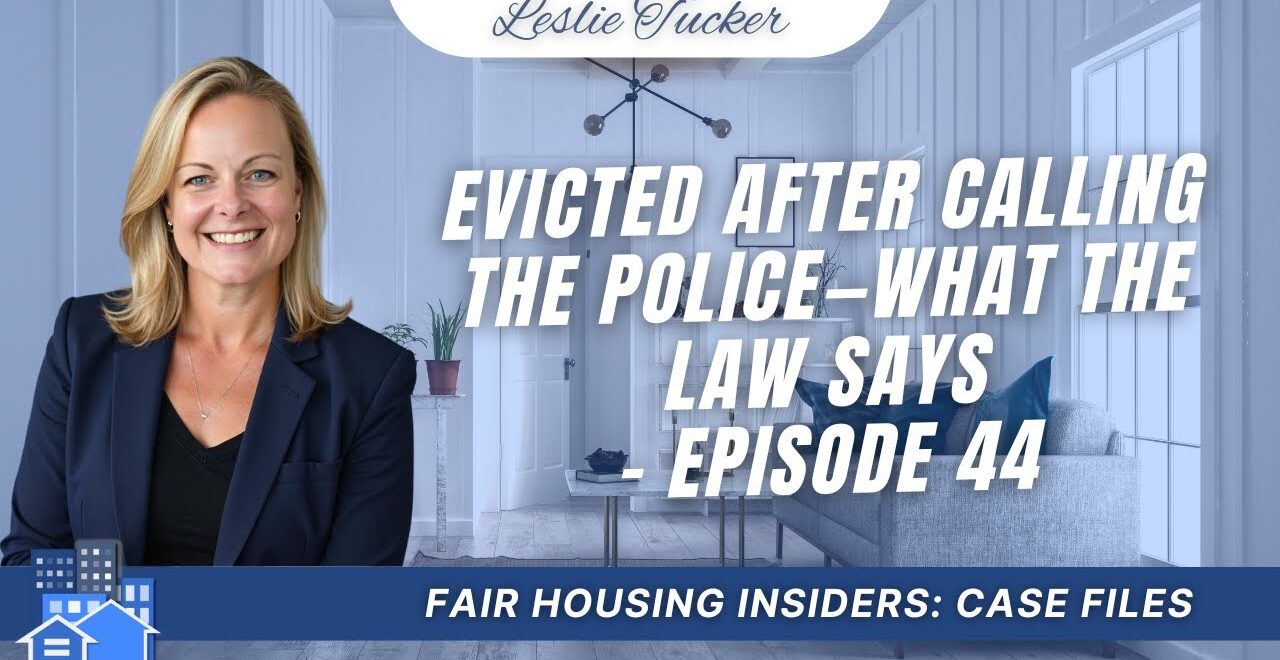When a tenant reaches out for help, especially in moments of personal crisis, the last thing they should face is the loss of their home. Yet that’s exactly what’s at the heart of United States v. David and Lisa Montanis—a fair housing case alleging that a woman was evicted after calling the police for protection from domestic violence. This case offers a critical lesson for housing providers about retaliation, tenant rights, and compliance with federal law.
Retaliation After a Domestic Violence Report
In this case, the tenant, identified as BG, was living in a single-family home in New Hampshire with her husband and children. The property was owned by her in-laws, and although there was no written lease, they had a long-standing verbal rent-to-own agreement, paying $1,800 per month in rent and utilities. For over two years, there were no complaints, police reports, or disputes.
But in October 2023, BG’s life changed. Following a domestic violence incident, her sister called the police after seeing visible bruises. BG’s husband was arrested the same day and later indicted on multiple felony charges. Within hours of his arrest, the landlords (BG’s in-laws) arrived at the property, told BG she no longer lived there, and allegedly locked her out, changed the garage code, and blocked access to the home. Law enforcement stepped in and confirmed that BG had legal tenancy rights, but the alleged intimidation and disruption had already occured.
Understanding Tenant Rights Under VAWA
The government’s complaint centers on the Violence Against Women Act (VAWA), which prohibits housing discrimination or retaliation against tenants who experience domestic violence. Under VAWA, landlords are prohibited from evicting or otherwise penalizing a tenant for contacting law enforcement in these situations.
The law protects tenants’ right to seek help, regardless of how frequently they need to, or how it may affect others in the community. Even without a formal lease, tenants have protections under federal law, and attempts to remove or intimidate them after they have taken a protected action can violate those rights.
Eviction Timing Can Trigger Legal Scrutiny
After the initial lockout attempt, BG received a formal eviction notice three weeks later. Her in-laws claimed they intended to sell the property. In response, BG obtained a domestic violence protection order and filed a complaint with HUD. That first eviction attempt was withdrawn, but in March 2024, a second notice was issued. The home was sold in April, and the new owner also served an eviction notice. Although a temporary stay allowed BG to remain on the property through October, she and her children left in August, after nearly a year of ongoing housing uncertainty.
What stands out is the timing. The series of eviction efforts and the sale of the property closely followed BG’s police report, which raises significant concerns about whether those actions were retaliatory. HUD investigated and found reasonable cause, resulting in a charge of discrimination. The landlords chose to take the matter to federal court, where it is currently being addressed.
Why Fair Housing Compliance Matters for Landlords
This case highlights several key risks for housing providers. Attempting to evict a tenant—or even threatening eviction—shortly after they’ve exercised a protected right can be interpreted as retaliation. It’s also important to remember that verbal rental agreements do not remove federal protections. Whether the tenant has a written lease or not, they are still protected by fair housing laws and VAWA.
Additionally, housing decisions driven by personal emotions, family dynamics, or frustration can result in legal consequences. While it may feel like a private dispute, the moment housing is involved, federal fair housing laws apply. Retaliatory actions—especially those that follow reports of domestic violence—are taken seriously by HUD and the Department of Justice.
Fair Housing Laws Protect Tenants Seeking Help
At its core, this case is about ensuring safety and stability. Tenants should never have to choose between calling the police and keeping their home. The law is clear: housing providers cannot retaliate against tenants for reporting domestic violence or other VAWA crimes.
This situation serves as a potent reminder that every housing provider must be aware of their responsibilities under VAWA and the Fair Housing Act. Making informed, lawful decisions protects not only your residents but your business as well. Always consult legal counsel when navigating sensitive tenant issues, and ensure your staff are trained on fair housing compliance.
By understanding what the law says—and how it’s enforced—property managers and owners can avoid costly mistakes and provide a safer, more respectful housing environment for all.
You Might Also Like:
- Update on the Accessible Parking Case You’ve Been Following – Episode 49
- When Eviction Becomes Retaliation – Episode 48
- Case Files: The Price of Parking Discrimination – Episode 47
- Case Files: ESA Denied After Online Provider Verification—What Went Wrong? – Episode 46
- Case Files: When Mold, Disability, and Retaliation Collide – Episode 45

